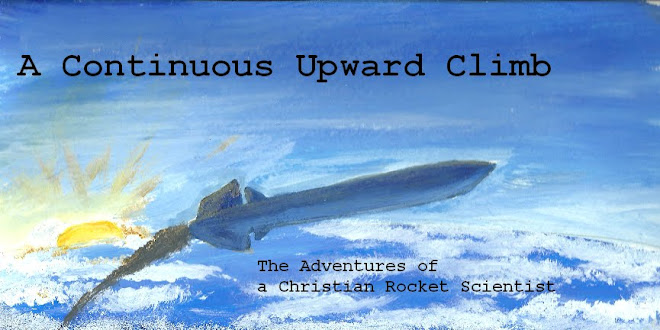My YouTube channel has just crossed 100 subscribers. I post all kinds of videos from rockets to programming. Check it out!
http://www.youtube.com/user/DTHRocket
9/20/11
100 Subscribers!
9/18/11
9/17/11
Rocket Science 101 Course Syllabus
- Trigonometry, minimum knowledge of calculus, basic physics
- Rocket Propulsion Elements (7th edition) Sutton and Biblarz
- Handbook of Model Rocketry (7th edition) Stine and Stine
- Students grade themselves. There will be several quizzes and one exam, weighted by:
- Quizzes: 25%
- Semester project 25%
- Final Exam 50%
1. Definition of a rocket
2. Math background
3. Physics background
4. Chemistry/thermodynamics background
5. Basic nozzle theory
6. Forces on a rocket
7. Aerodynamic drag
8. Flight stability
9. Thrust and weight
10. Analysis of flight
11. Model rocketry
12. Semester project
Level-2 Certified After All?
I got my new Tripoli Rocketry member card in the mail yesterday, and lo and behold, it says "cert level 2." I tried for level 2 three times last summer, and *supposedly* failed each time. Evidently one of those flights (probably the last one) was not such a failure after all.
9/12/11
Rocket Science 101
I'm going to start a video series on YouTube on basic rocket science. Nothing too complex or too basic; I will be starting with concepts like Newton's laws and gradually get more complicated to describe the motion of a rocket. At the end, I will give an introduction to the actual engineering of a rocket (model rocket).
My aim is to get more people interested in the field of aerospace engineering, specifically rocketry and spacecraft. Even if only a handful of people watches these videos and only one of them is inspired to dig deeper, these videos will have been a success.
I will post a short "syllabus" soon.
9/9/11
Everything You Wanted to Know About Sound in 12 Minutes
I like it when people are smart and creative and humorous and competent and comprehensive.

